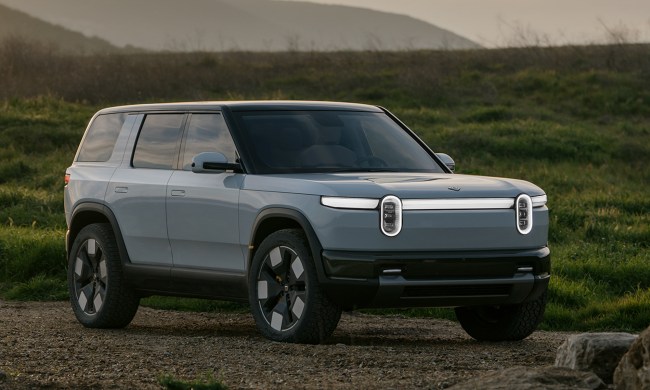A team of medical staff at the University Hospital of Wales tasked with resuscitating babies noticed how their work in many ways mirrored that of speedy pit-stop mechanics, where time is a crucial factor in the final outcome. Hoping to improve its own procedures, the hospital contacted the Williams F1 team for help.
The hospital asked the team to show them how they could boost the speed and efficiency of essential aspects of their work to save vital seconds that could mean the difference between life and death for a struggling newborn.
Keen to assist, Williams helped hospital staff make improvements in three key areas, according to the FT. First they made changes to the hospital trolley where resuscitations are performed, improving the layout of important equipment and removing any tools that weren’t absolutely necessary for the task in hand.
Navigating tight spaces was also a key factor, with the Williams team suggesting marking maps out on the floor so medical staff could work together more efficiently.
Finally, the F1 team offered tips on team dynamics to ensure everyone knew their precise role and was able to communicate clearly and effectively during an emergency procedure. Hand signals were suggested, and video analysis of the team in action was also introduced, useful for spotting areas where more work is needed to enhance work methods. The medical staff are also planning to use head-based GoPro cameras to aid video analysis.
“Everyone now has an identified role so before we get started they are clear on what they are doing, whether it’s airways or cardiac,” Dr Rachel Hayward, a neonatal care specialist at the hospital, told the FT. She added that it was still too early to say if its improved system has saved any lives, but said it’d been welcomed by staff.
The Williams team has performed the fastest in pit-stop work so far this season, with engineers practicing around 2,000 stops a year in a bid to save vital milliseconds on race days.
“Both scenarios [F1 pit stops and hospital emergencies] require a team of people to work seamlessly in a time-critical and space-limited environment,” the racing team told the FT.
Commenting on the medical team’s challenging task, Claire Williams, daughter of the racing team’s founder, said, “Their work is vitally important and the pressure they work under is difficult to comprehend. If some of the advice we have passed on helps to save a young life then this would have been an extremely worthy endeavor.”


